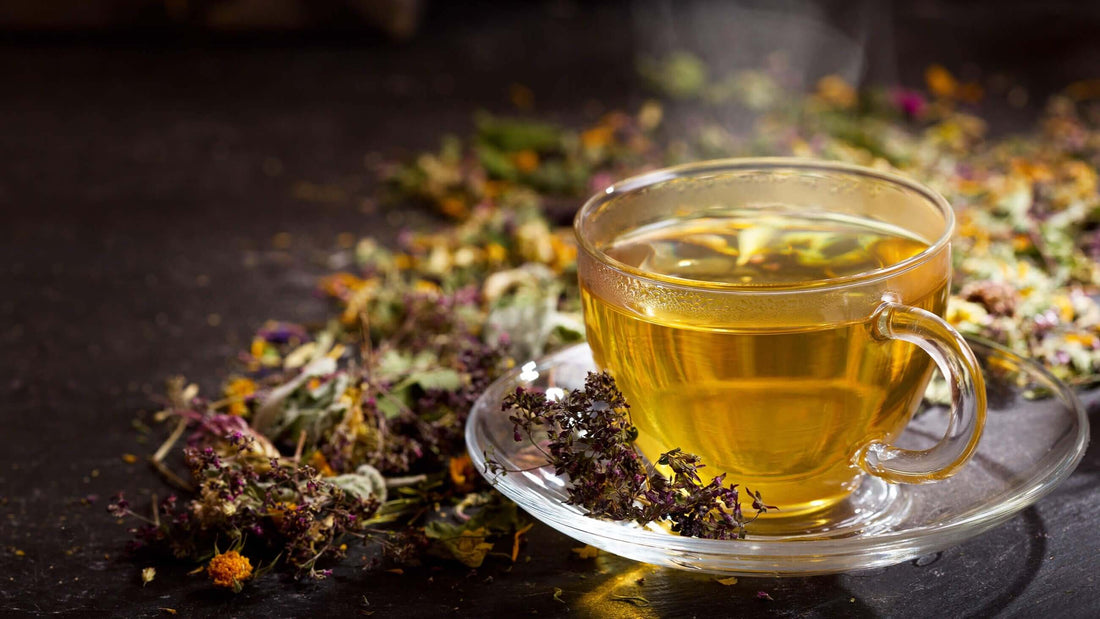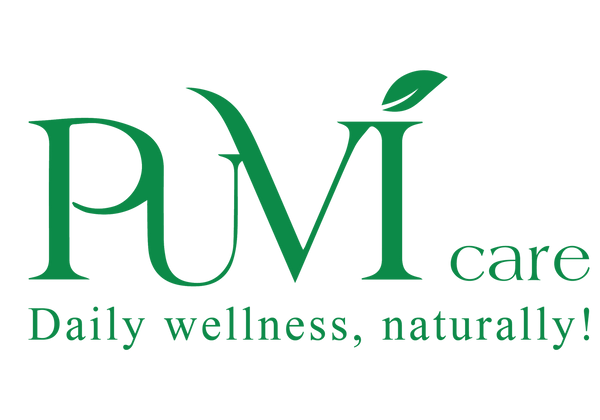
The Comprehensive Guide to Herbal Tea for Health
Share
Introduction to Herbal Tea
Herbal tea has long been celebrated for its soothing qualities and natural health benefits. Made from infusing herbs, flowers, seeds, roots, or spices in hot water, it provides a caffeine-free alternative to traditional black or green teas and is packed with therapeutic properties. In this guide, we’ll explore how herbal teas can support overall health, the different types available, and why this natural beverage deserves a place in your daily routine.
Definition of Herbal Tea
Unlike traditional teas derived from the Camellia sinensis plant, herbal teas are made from a variety of plant materials such as herbs, roots, flowers, and spices. These brews are caffeine-free, making them ideal for people sensitive to caffeine or those who want to reduce their intake. Herbal tea comes in many flavors and can be enjoyed hot or iced.
Historical Background of Herbal Tea
The use of herbal tea dates back thousands of years. In ancient Egypt, Greece, and China, herbal brews were used as natural remedies for various ailments. For instance, the Egyptians used chamomile for relaxation, while the Chinese valued ginseng tea for energy. These traditions have passed through generations, leading to the popularity of herbal tea worldwide.
Different Types of Herbal Teas
There is a wide range of herbal teas available today, each with its own unique benefits and flavors. Some of the most popular include:
- Chamomile – Known for its calming effects.
- Peppermint – Aids digestion and soothes stomach issues.
- Ginger – Excellent for nausea and inflammation.
- Hibiscus – Known for its antioxidant properties.
- Rooibos – Rich in minerals and beneficial for skin health.
Benefits of Herbal Tea
Herbal teas offer a range of health benefits, making them a favorite among health-conscious individuals.
Antioxidant Properties
Many herbal teas contain antioxidants, which protect cells from free radicals, the molecules that can cause cellular damage. Herbal teas like hibiscus and rooibos are particularly high in antioxidants, which may help in reducing the risk of chronic diseases.
Immune System Support
Certain herbal teas, like echinacea and elderberry, have been traditionally used to boost immune health. These teas may help reduce the severity and duration of colds, especially during the winter season.
Digestive Health
Herbal teas such as peppermint, ginger, and fennel are known for their digestive benefits. They help reduce bloating, relieve nausea, and ease indigestion, making them ideal for people who often experience stomach discomfort.
Stress Relief and Relaxation
Herbal teas like chamomile and lavender are famous for their calming effects. These teas help reduce stress and improve sleep quality, making them a great evening ritual for relaxation.

Popular Herbal Teas and Their Health Benefits
Let’s dive deeper into some popular herbal teas and explore how they can benefit your health.
Chamomile Tea
Chamomile tea is widely recognized for its calming effects. It’s often used to aid sleep and reduce anxiety. Chamomile contains compounds like apigenin, which helps relax the nervous system.
Peppermint Tea
Peppermint tea is excellent for digestion. It contains menthol, which has a soothing effect on the digestive tract. Drinking peppermint tea can relieve bloating and stomach discomfort after meals.
Ginger Tea
Ginger tea is well-known for its anti-inflammatory and antioxidant effects. It’s often used to ease nausea, support digestion, and relieve joint pain. Gingerol, the active compound in ginger, contributes to these health benefits.
Hibiscus Tea
Hibiscus tea is rich in antioxidants, particularly anthocyanins, which give it a vibrant red color. This tea may help lower blood pressure and support cardiovascular health.
Rooibos Tea
Rooibos, also known as red bush tea, is a South African tea rich in minerals like calcium, potassium, and magnesium. It supports skin health, bone strength, and is known for its high antioxidant content.
How to Prepare Herbal Tea
Preparing herbal tea is a simple process, but choosing the right ingredients and brewing methods can enhance both flavor and health benefits.
Choosing Quality Ingredients
Using fresh, organic herbs or high-quality loose-leaf teas is recommended for the best results. Avoid artificial flavors or additives for a pure and natural tea experience.
Brewing Techniques
Most herbal teas can be brewed by steeping in hot water for about 5-10 minutes. Adjust the steeping time based on the type of tea and personal preference.
Flavoring and Enhancements
For added flavor, you can add a slice of lemon, a dash of honey, or a cinnamon stick. These natural additions can enhance the taste and provide additional health benefits.
Herbal Tea for Specific Health Conditions
Herbal teas can be particularly beneficial for managing certain health conditions.
Herbal Tea for Anxiety and Stress
Chamomile, lemon balm, and lavender teas are commonly recommended for reducing anxiety and promoting relaxation.
Herbal Tea for Sleep Disorders
Chamomile, valerian root, and passionflower teas are effective for those struggling with sleep issues, helping to improve sleep quality.
Herbal Tea for Immune Boosting
Elderberry, echinacea, and ginger teas are often used to boost the immune system, especially during cold and flu season.
Herbal Tea for Digestive Issues
Ginger, peppermint, and fennel teas can alleviate symptoms like bloating, indigestion, and stomach cramps, making them ideal for digestive support.
Safety and Precautions
While herbal teas are generally safe, there are certain precautions to keep in mind.
Potential Side Effects
Some herbal teas may cause allergic reactions or interact with medications. Always check with a healthcare provider if you’re unsure.
Interactions with Medications
Herbal teas, like licorice root or ginseng, can interfere with certain medications. It’s best to consult with a doctor if you are on prescription medication.
Guidelines for Pregnant and Nursing Women
Pregnant and nursing women should be cautious with herbal teas. Some herbs, like sage and hibiscus, may not be safe. Always seek medical advice before incorporating new herbal teas into your diet.
The Science Behind Herbal Tea
Scientific research on herbal tea is growing, offering insights into its health benefits.
Active Compounds in Herbal Teas
Herbal teas contain active compounds like flavonoids, antioxidants, and anti-inflammatory agents. These compounds play a significant role in promoting health.
Research Studies on Herbal Tea Efficacy
Studies have shown that herbal teas like ginger and chamomile have measurable health benefits. For example, research indicates that ginger can reduce nausea, and chamomile may improve sleep quality.
Traditional Knowledge vs. Modern Science
While modern science has validated many benefits of herbal tea, much of the knowledge comes from centuries-old traditions. Combining these perspectives offers a fuller understanding of herbal tea’s role in health.

Herbal Tea in Different Cultures
Herbal tea traditions vary globally, with unique practices and herbs used in each region.
Asian Herbal Tea Traditions
In Asia, herbal teas have been used in traditional medicine for centuries. Green tea, ginseng, and chrysanthemum are popular choices for health and well-being.
Western Herbal Practices
Western herbalism incorporates herbs like peppermint, chamomile, and lavender, which are valued for their calming and digestive benefits.
Indigenous Use of Herbal Teas
Many indigenous cultures around the world have used herbs native to their region for medicinal purposes, such as nettle tea for nutrition or mint tea for digestion.
Incorporating Herbal Tea into Your Daily Routine
Adding herbal tea to your daily routine is easy and can bring multiple health benefits.
Best Times to Drink Herbal Tea
Morning and evening are popular times for herbal tea. A calming tea in the evening, like chamomile, can help with sleep, while a digestive tea after meals supports digestion.
Pairing Herbal Tea with Meals
Pairing herbal teas with meals, such as peppermint after a heavy meal, can enhance digestion and improve the overall dining experience.
Creative Recipes Using Herbal Tea
Experiment with iced herbal teas, herbal tea lattes, or using herbal tea as a base for smoothies to make it more versatile and enjoyable.
Conclusion
Herbal tea is a powerful, natural way to improve your health and well-being. With a rich history and a variety of flavors, herbal teas offer something for everyone, whether you’re looking for relaxation, immune support, or digestive aid. By understanding the unique properties of different herbal teas, you can choose the ones that best suit your health needs and make this ancient remedy a staple in your daily life.
FAQs
-
What is the best herbal tea for sleep?
Chamomile and valerian root teas are highly recommended for promoting relaxation and improving sleep quality. -
Can I drink herbal tea every day?
Yes, most herbal teas are safe for daily consumption, but it’s always good to vary your choices to enjoy a range of benefits. -
Is herbal tea safe for children?
Mild herbal teas like chamomile can be safe for children in small amounts, but always consult a healthcare provider first.
